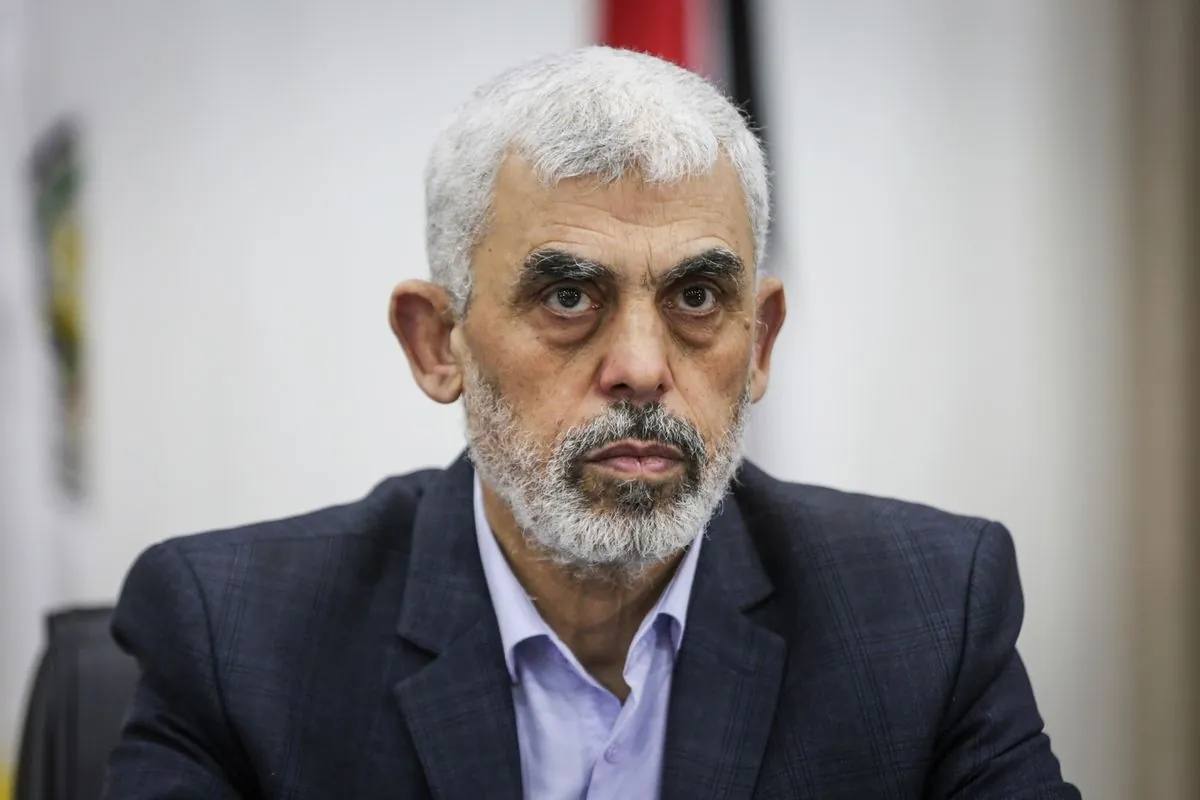Hamas Leader Sinwar's Unwavering Stance Amidst Gaza Conflict
Yahya Sinwar, Hamas leader, remains resolute despite devastating consequences of Oct. 7 attacks. Operating from tunnels, he continues to shape Hamas strategy, influenced by his past and ideology.

One year after the devastating Oct. 7 attacks, Yahya Sinwar, the leader of Hamas, remains steadfast in his beliefs despite the catastrophic aftermath. The 62-year-old architect of the cross-border raids that resulted in the deadliest day in Israel's history continues to advocate for armed struggle as the sole means to establish a Palestinian nation.
Sinwar's leadership style, characterized by secrecy and resolve, has been shaped by his impoverished upbringing in Gaza's refugee camps and his 22-year imprisonment in Israel. Born in 1962 in the Khan Younis refugee camp, Sinwar experienced firsthand the hardships of life under occupation. His childhood coincided with a period of significant upheaval in the region, as the Gaza Strip has been inhabited for thousands of years and has been a focal point of the Israeli-Palestinian conflict since the mid-20th century.
The Hamas leader operates from a network of underground tunnels, using trusted messengers for non-digital communication. This clandestine approach reflects the complex reality of the Gaza Strip, which has been under an Israeli-Egyptian blockade since 2007 and is one of the most densely populated areas in the world.

Sinwar's ideology and strategy for Hamas have been heavily influenced by his time in Israeli custody. During his imprisonment from 1988 to 2011, he became fluent in Hebrew and developed a deep understanding of his adversaries. The Oslo Accords of 1993 and 1995, which aimed to achieve peace between Israel and Palestinians, were viewed by Sinwar as ineffective, reinforcing his belief in armed resistance.
The Oct. 7 attacks, which resulted in the deaths of 1,200 people and the capture of 250 hostages according to Israeli figures, led to a massive Israeli retaliation. The subsequent conflict has caused widespread destruction in Gaza and has drawn in other regional actors, including Hezbollah in Lebanon and the Houthis in Yemen, both part of the Iran-led "Axis of Resistance."
Despite the devastating consequences, Sinwar's grip on Hamas remains strong. He has been instrumental in shaping the organization's military capabilities and strategy, bolstered by strong ties with Iran. Hamas, founded in 1987 as an offshoot of the Egyptian Muslim Brotherhood, has been designated as a terrorist organization by several countries, including the US and EU.
The current conflict has reignited debates about the long-standing Israeli-Palestinian issue. The two-state solution, proposing independent Israeli and Palestinian states, has been the focus of many peace negotiations but remains elusive. The situation is further complicated by the presence of the Palestinian Authority in parts of the West Bank and the controversial Israeli West Bank barrier.
As the conflict continues, the international community grapples with the humanitarian crisis in Gaza and the broader implications for regional stability. The International Criminal Court's ongoing investigation into alleged war crimes in Palestinian territories adds another layer of complexity to an already intricate situation.
"Sinwar often told us: 'I'm not in prison; I'm on my land. I am free here, in my country.'"
This quote encapsulates Sinwar's unwavering commitment to his cause, a sentiment that continues to drive his actions and decisions as the leader of Hamas. As the conflict enters its second year, the prospect of a peaceful resolution remains distant, with Sinwar's ideology and Hamas's armed struggle continuing to shape the volatile landscape of the Israeli-Palestinian conflict.


































